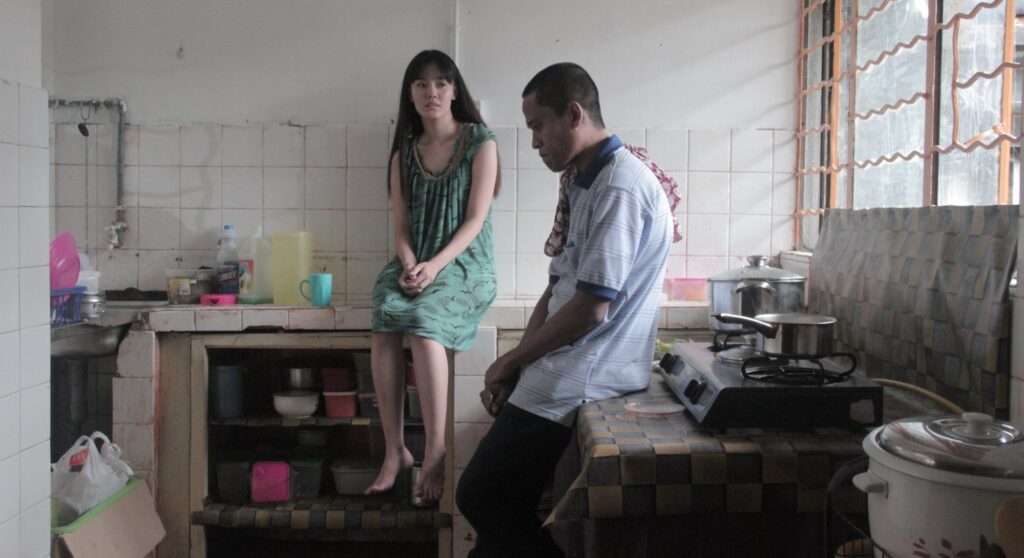Malaysian Oscar hope Prebet Sapu explores race relations and shattered dreams in Kuala Lumpur’s dark underbelly
The National Film Development Corporation Malaysia (Finas) has chosen a monochromatic coming-of-age journey set in the lower echelons of capital Kuala Lumpur to represent the Southeast Asian nation at the 94th Academy Awards next year.
Known internationally as Hail, Driver! , Muzzamer Rahman’s low-budget debut film Prebet Sapu (2020) will compete in the Best International Film Category after turning heads at Italy’s Far East Film Festival, the Jogja-Netpac Asian Film Festival in Indonesia, the Toronto Reel Asian International Film Festival in Canada, and Spain’s Asian Film Festival.
Finas, which sent the atmospheric jungle-horror Roh (2019) by Emir Ezwan to Los Angeles last year, is showing its support for “low budget films by young Malaysian filmmakers who still manage to deliver good quality products with strong narrative messages,” says Ku Mohamad Haris Ku Sulong, a board director of Finas.
Prebet Sapu tells the story of Aman, a Malay man who moves from a small town in the forested Malaysian interior to the capital Kuala Lumpur after the death of his father. Looking for a better future, Aman soon learns that the big city can shatter the dreams of naive kampung (countryside) people like him pretty quickly.
“I really love black-and-white photographs of Kuala Lumpur, because the monochrome gives [the city] a very lively, busy, modern feeling that mixes with loneliness,” says director Muzzamer of his unconventional choice of making a black-and-white film.
Monochrome was also perfect to tell a story of inter-ethnic relations, because “despite our different skin colours, in today’s life, and especially in big cities, we are all the same,” says Bebbra Mailin, Prebet Sapu ’s producer and Muzzamer’s wife.

PHOTO: Muzzamer Rahman
Muzzamer also tried to present the world through the eyes of protagonist Aman, who is colour blind. “Because of his [vision] problem, he cannot afford a proper car licence, but still has to drive to live,” he says.
Aman starts work as an e-hailing driver, but things soon go sour when he’s evicted from the room he rents and has to sleep in his car. A chance meeting with Bella, a Chinese-Malaysian woman from Penang who gets by working as an escort, is Aman’s only opportunity to find a new purpose.
Even if they are divided by ethnicity, religion, lifestyle and morals, Bella decides to make Aman her personal driver, allowing him into her home and world.
Like two non-matching jigsaw pieces in the puzzle of a hostile city that glitters only on the surface, the two bond by smoothening out their rough edges and adapting to each other.

PHOTO: Muzzamer Rahman
The film stars a multi-ethnic cast with Amerul Affendi (as Aman), Lim Mei Fen (as Bella), and appearances from established Malaysian actors like Nam Ron, Bront Palarae – well-known for his work with Indonesian director Joko Anwar, including the popular Satan’s Slaves (2017) – and Sharifah Amani, best known for her role as Orked in the films Sepet (2005) and Gubra (2006) by Malaysian director Yasmin Ahmad.
Prebet Sapu rekindles the spirit of Malaysia’s cinematic New Wave of the 2000s – of which Yasmin was a pioneer – by depicting race relations and the problematic consequences of Kuala Lumpur’s breakneck urbanisation without pulling punches.

PHOTO: Muzzamer Rahman
“I was really inspired by the spirit of the Malaysian New Wave, when filmmakers like Amir Muhammad, James Lee, Ho Yuhang, Tan Chui Mui, Woo Ming Jin, and Liew Seng Tat made films … about social struggles,” Muzzamer says.
“If Prebet Sapu continues that legacy, it is an honour for me, because the film not only captures the multi-ethnic character of Malaysia but is also made with an independent spirit and with the help of young artists.”
While waiting for the Oscar nominations, Prebet Sapu will open in Malaysian cinemas on Dec 16 as the local film industry slowly recovers from the country’s Covid-19’s lockdowns.

PHOTO: Muzzamer Rahman
“Honestly, winning at the Oscars is not really our main target,” says Muzzamer, despite acknowledging the Academy Awards’ submission will help Prebet Sapu reach a wider audience. “I just want this film to be watched by as many people as possible, especially by Malaysians.”












Leave a Reply